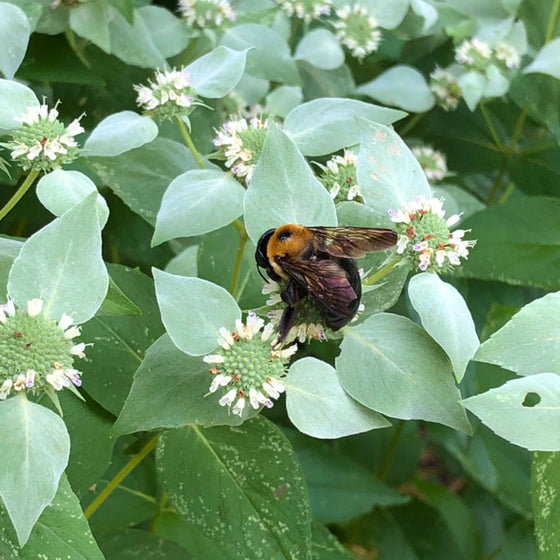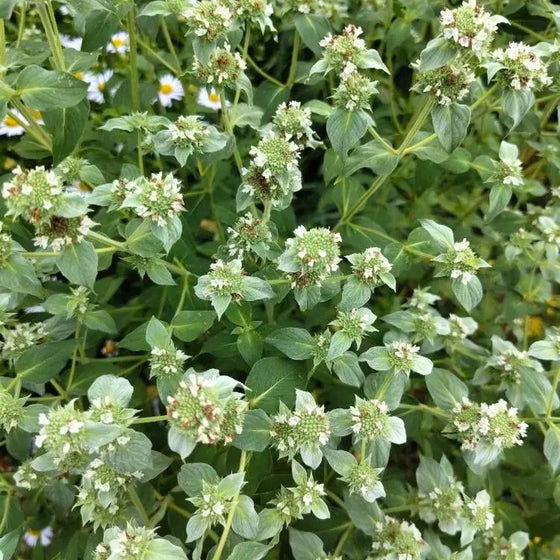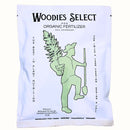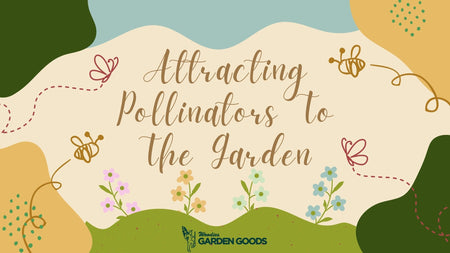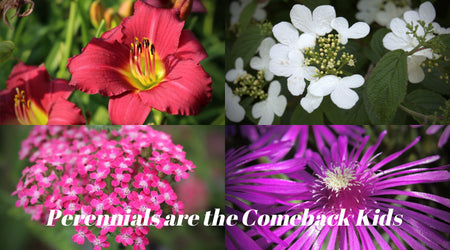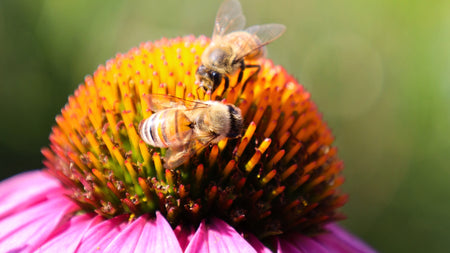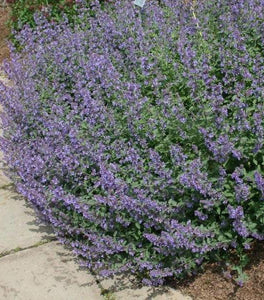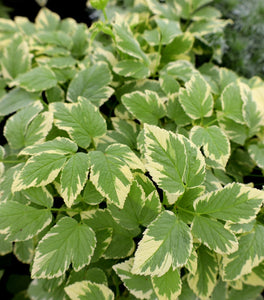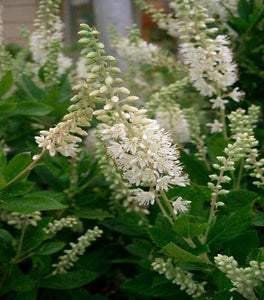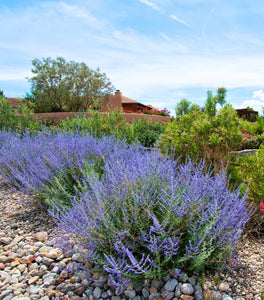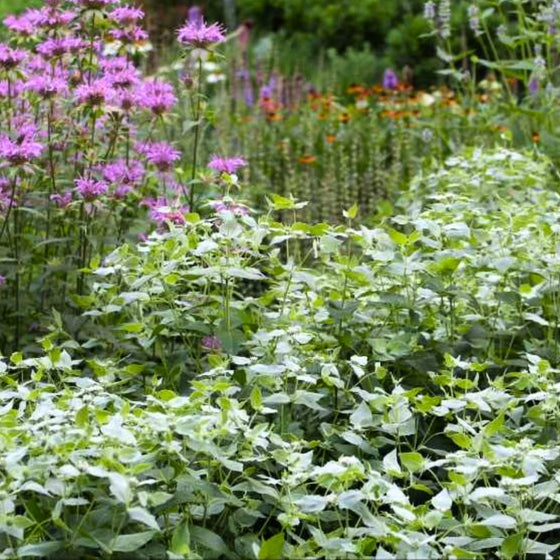
Images Depict Mature Plants
Mountain Mint For Sale Online
Mountain Mint (Pycnanthemum spp.) is a highly aromatic, native perennial that brings exceptional beauty, biodiversity, and functionality to the garden. Known for its minty fragrance and silvery-green foliage, Mountain Mint produces clusters of small, tubular flowers in shades of white, pink, or pale lavender from mid to late summer. These nectar-rich blooms are a magnet for pollinators, especially bees, butterflies, and beneficial insects, making it a must-have for pollinator gardens and native plant landscapes. Its upright habit and dense growth also make it ideal for use as a fragrant border plant or naturalized massing.
Reaching 2 to 3 feet tall and wide, Mountain Mint thrives in full sun to partial shade and prefers well-drained soils, though it adapts well to a variety of growing conditions, including dry or moderately moist areas. It's exceptionally low maintenance, deer resistant, and drought tolerant once established, making it a top performer in low-input and ecological landscapes. The foliage holds its minty scent throughout the growing season and can be used in teas or dried for potpourri and herbal remedies. Whether planted in meadows, along walkways, or in rain gardens, Mountain Mint adds both ornamental and ecological value.
Hardy in USDA Zones 4–8, Mountain Mint is a North American native that supports healthy ecosystems while offering seasonal blooms, attractive foliage, and natural pest resistance. It pairs beautifully with other native plants like coneflowers, black-eyed Susans, and milkweed, and spreads modestly to form attractive colonies. Ideal for gardeners seeking to attract pollinators, deter deer, and create sustainable garden spaces, Mountain Mint is a resilient, fragrant, and visually charming addition to any sunny or lightly shaded garden.
2025 Perennial of the Year
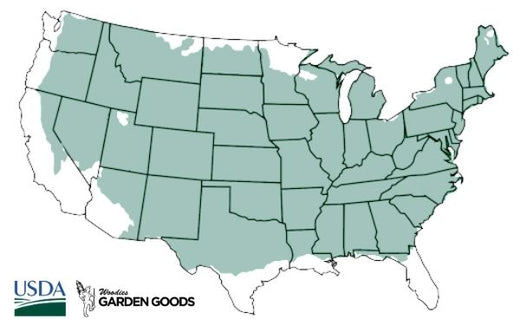
| Hardiness Zone: | 4-8 |
|---|---|
| Height: | 24 to 30 Inches |
| Width: | 24 to 30 Inches |
| Classification: | Flowering Perennial |
| Sunlight: | Full sun, tolerates partial sun |
| Habit: | Spreading, bushy growth |
| Flower Color: | White |
| Flowering Season: | Mid summer through early fall |
| Foliage: | Green, minty fragrance |
| Soil Condition: | Prefers dry, average to sandy soil |
| Water Requirements: | Water well until established |
| Uses: | Extremely attractive when used as a focal point in the mixed border, mass planting; attracts pollinators, deer resistant |
How to Care for Mountain Mint
Before you buy Mountain Mint, make sure to read about the recommended care instructions to keep this plant healthy and thriving.
How do I plant Mountain Mint?
Planting Mountain Mint (Pycnanthemum spp.) is easy and rewarding, especially if you're looking to enhance your garden’s biodiversity with a native, pollinator-friendly perennial. Begin by choosing a location that receives full sun to partial shade, as Mountain Mint thrives in bright conditions but can tolerate some afternoon shade. This adaptable plant prefers well-drained soil and is tolerant of poor, rocky, or clay conditions, making it a great choice for low-maintenance or naturalized landscapes. To plant, dig a hole slightly wider than the root ball, place the plant so the top of the root crown is level with the soil surface, backfill with native soil, and water thoroughly. Space Mountain Mint plants about 18 to 24 inches apart, especially if planting in groups or as a pollinator-friendly border. Mulching around the base can help retain moisture and suppress weeds, though the plant becomes quite drought-tolerant once established. As a vigorous spreader, Mountain Mint will gradually form attractive, dense clumps that are ideal for meadows, rain gardens, or herbal edges. Its ability to thrive in diverse conditions while supporting native bees and butterflies makes it a top choice for gardeners seeking an easy-care, eco-friendly plant that delivers both beauty and ecological benefit.
How do I water Mountain Mint?
Watering Mountain Mint (Pycnanthemum spp.) properly is essential for establishing a healthy plant, especially in the first growing season. After planting, water deeply once or twice a week to keep the soil consistently moist but not soggy. This helps the roots establish a strong foundation in the garden. Mountain Mint prefers well-drained soil, so avoid sites where water tends to pool or remain saturated. Once the plant is established, typically after the first full growing season, it becomes exceptionally drought tolerant, making it a great choice for low-maintenance and sustainable landscapes. In most climates, established Mountain Mint only needs supplemental watering during extended dry spells or particularly hot summer weeks. Check the soil moisture by feeling the top couple of inches—if it's dry to the touch, it's time to water. Applying mulch around the base of the plant can help retain soil moisture and reduce watering frequency while keeping weeds at bay. Its ability to adapt to varying water levels makes Mountain Mint ideal for pollinator gardens, rain gardens, and wildflower meadows, where dependable performance and ecological value are essential.
How do I fertilize Mountain Mint?
Fertilizing Mountain Mint (Pycnanthemum spp.) is rarely necessary, as this tough native perennial thrives in average to poor soils and is well adapted to low-nutrient environments. In fact, over-fertilizing can lead to excessive foliage growth and reduced flowering, diminishing its value as a pollinator plant. If your soil is particularly depleted or you’re planting in a new garden bed, you can apply a light layer of compost or organic matter in early spring to boost soil fertility naturally. This organic approach supports steady growth and encourages abundant blooms without overstimulating the plant. For those who prefer using packaged fertilizers, a once-a-year application of a balanced, slow-release fertilizer (such as 10-10-10) in early spring is more than enough to support healthy development. Spread the fertilizer evenly around the base of the plant, taking care not to apply it directly to the stems, and water it in thoroughly. In most conditions, Mountain Mint’s low nutrient requirements make it a perfect addition to low-maintenance gardens, native plantings, and ecological landscapes, where its vigorous growth, aromatic foliage, and pollinator-attracting flowers can shine without extra feeding.

How and When should I Prune Mountain Mint?
Pruning Mountain Mint (Pycnanthemum spp.) is a simple but effective way to maintain its shape, encourage bushier growth, and extend its bloom time. The best time to prune is in late spring to early summer, just as the plant is developing new shoots. You can pinch or lightly trim the tips of young stems to promote branching and create a fuller, more compact plant. This technique can help reduce flopping later in the season and increase the number of flowering stems, attracting even more bees, butterflies, and beneficial insects to your garden. After the flowers fade in late summer or early fall, you can either leave the seed heads standing for winter interest and wildlife value or cut the plant back to just a few inches above the ground. Late fall or early spring pruning is ideal for general cleanup and rejuvenation, removing old stems to make room for fresh growth. Avoid heavy pruning during the peak bloom season, as this can reduce the number of flowers. With minimal effort, pruning helps maintain Mountain Mint’s tidy appearance, enhances its ornamental value, and supports its role as a standout performer in pollinator gardens, native plant borders, and low-maintenance landscapes.

